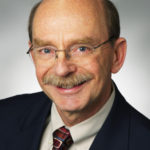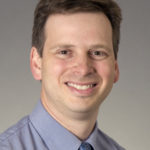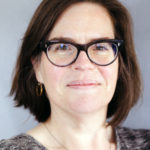With a worldwide shortage of rheumatologists that is projected to only get worse, how can providers reach patients with rheumatic diseases in remote or underserved areas of the world?
A panel will tackle that question and others Wednesday from 11:00 am – 12:30 pm in Room 31 C during Global Rheumatology: Bridging the Gaps.

E. Michael Lewiecki, MD, will talk about Project ECHO (Extension for Community Healthcare Outcomes), a telementoring initiative developed at the University of New Mexico to address the shortage of specialists. ECHO works to elevate the level of knowledge of healthcare professionals of all specialties to provide advanced levels of care for patients in underserved areas. The goal is to increase capacity to deliver best practice care, closer to home, with greater convenience and lower cost than referral to a specialty center.
“Project ECHO was originally developed as a form of telementoring to address the treatment gap in chronic hepatitis C,” Dr. Lewiecki said. “As an outgrowth of that, we developed the Bone Health TeleECHO program, in which healthcare professionals from around the world participate in weekly teleconferencing sessions to discuss patient cases and learn from each other about current best practices for the treatment of osteoporosis.”
Dr. Lewiecki, Director of the New Mexico Clinical Research & Osteoporosis Center and Director of the Bone Health TeleECHO program at the University of New Mexico Health Sciences Center in Albuquerque, said there are now several active Rheumatology TeleECHO programs with participating primary care providers and other generalists who wish to be trained to provide a higher level of care for patients with rheumatic diseases.

Paul S. Pottinger, MD, DTM&H, Associate Professor of Medicine in the Division of Allergy & Infectious Diseases and Director of the Tropical Medicine & General Infectious Diseases Clinic at the University of Washington Medical Center in Seattle, will talk about how rheumatologists recognize unique infections from various geographic locations that may affect choice of medications for patients with rheumatic diseases.
“Because international travel is so straightforward for so many people in the world, the risk of imported infections is something all healthcare providers need to be mindful of,” Dr. Pottinger said. “With more people coming to the U.S. from everywhere around the globe, rheumatologists need to be careful before they give an immunosuppressive agent to somebody who might have an imported or occult latent infection.”
People may come to the U.S. with any of a number of potential bacterial infections, such as tuberculosis (TB), which Dr. Pottinger said might be latent and causing no problems for them, until their immune system is suppressed.
“Of all the infections I’ll talk about that are important to the U.S., tuberculosis is one of the leading concerns. It is such an incredibly common infection — about one third of people alive today have tuberculosis, almost always in the latent form,” he said. “We need to know how to screen people for tuberculosis, how to handle them if they rule in for latent TB, and how to monitor them once we start immunosuppressive therapy, because there is always a risk that TB could become active. Testing and treatment options are changing, and the germs are becoming more resistant.”

Also during the symposium, Jennifer Barton, MD, Associate Professor at Oregon Health & Science University and an attending rheumatologist for the VA Portland Health Care System, will discuss strategies for delivering high-quality care across language and cultural barriers.
“With more and more diversity in our populations, we may encounter multiple languages and cultures every day in the clinic,” Dr. Barton said. “As rheumatologists, communication is integral to what we do. We need to elicit symptoms, preferences, and values from our patients, and we need to be able educate them about their diseases and their medications and have conversations about treatment decisions.”
Numerous studies have shown that patients with barriers to communication are among the groups that have poorer outcomes and experience disparities in care, she said. To overcome those barriers, Dr. Barton said, there are techniques and tools available to enable patient education and shared decision- making with patients who have limited English language proficiency.
“One of the things I’ve worked on in my research is a decision aid tool that we developed for rheumatoid arthritis in three languages — English, Spanish, and Chinese — and is designed to facilitate a conversation during the clinical encounter,” Dr. Barton said. “We have a responsibility as rheumatologists to ensure good quality communication, to use the tools that are available to us to promote shared decision making. Just because there are barriers, that doesn’t mean that we can’t deliver high-quality care for these groups that are most vulnerable to poor outcomes.”
